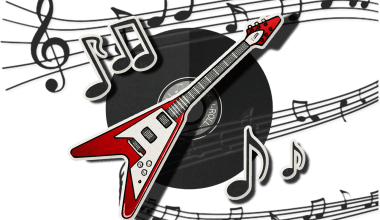If you’re an artist, you’ve probably wondered how to get your music onto Spotify, Apple Music, or even the local radio station. That’s where a music distributor comes in. A music distributor is your bridge to the world—helping you share your sound with listeners everywhere. Think of them as the middleman between you and your audience. They take your songs and deliver them to various platforms, ensuring they’re ready for streaming, downloading, or even physical sales.
Why Do You Need a Music Distributor?
As an artist, your main focus should be creating music, not worrying about the logistics of getting it out there. A music distributor handles the heavy lifting—they get your music onto platforms like Spotify, YouTube Music, Amazon Music, and more. Without one, your audience might never get to hear your creations.
Distributors also help with:
- Revenue Collection: They ensure you get paid for every stream, download, or sale.
- Wider Reach: Your music becomes available globally.
- Professional Credibility: Being on big platforms boosts your image.
How Does Music Distribution Work?
Understanding the process is easier than you think. Here’s how it usually goes:
- Create Your Music: This part is all you—record, mix, and master your tracks.
- Choose a Distributor: Find the best one for your needs. Some popular options include DistroKid, TuneCore, and CD Baby.
- Upload Your Tracks: Add your songs, album art, and metadata (like song titles and artist names) to their platform.
- Distribution: The distributor sends your music to streaming services, online stores, and sometimes even radio stations.
- Earn Royalties: As people stream or buy your music, the distributor collects your earnings and pays you.
Types of Music Distribution
Not all music distributors are the same. Depending on your goals, you might choose one type over another:
- Digital Distribution: Perfect for streaming services like Spotify and Apple Music.
- Physical Distribution: For CDs and vinyl lovers.
- Hybrid Distribution: A mix of both digital and physical.
Digital distribution is the most popular today, given the rise of streaming platforms.
Key Features to Look for in a Music Distributor
When choosing a distributor, it’s important to know what to look for. Here are some features you should consider:
- Platform Reach: Does the distributor work with major platforms like Spotify, YouTube, and Amazon?
- Fee Structure: Some charge upfront fees, while others take a percentage of your earnings.
- Royalty Payouts: How often do they pay you? Monthly? Quarterly?
- Additional Services: Do they offer promotional tools or analytics?
Choosing the right distributor can make all the difference in your music career.
Top Music Distributors in 2024
Here’s a quick look at some of the best options:
- DistroKid: Affordable and user-friendly.
- TuneCore: Great for artists who want control.
- CD Baby: Ideal for both digital and physical distribution.
- AWAL: Excellent for independent artists.
- LANDR: Combines distribution with mastering tools.
Each has its strengths, so choose one that aligns with your goals.
Benefits of Using a Music Distributor
Using a music distributor isn’t just about convenience—it’s about unlocking your potential as an artist. Here are some of the biggest benefits:
- Global Audience: Your music becomes accessible worldwide.
- Time-Saving: Focus on creating music while your distributor handles the rest.
- Professionalism: Appear more polished with proper metadata and album art.
- Revenue Growth: Maximize your earnings from every stream or sale.
Challenges of Music Distribution
While distribution makes life easier, it’s not without its challenges:
- Costs: Some distributors charge hefty fees.
- Competition: With millions of tracks on platforms, standing out can be tough.
- Royalty Cuts: Some distributors take a percentage of your earnings.
Understanding these hurdles can help you make better decisions and avoid pitfalls.
How to Choose the Best Music Distributor for You
Picking the right music distributor depends on your unique needs. Ask yourself:
- Do I want digital, physical, or both?
- How much am I willing to spend upfront?
- What additional tools do I need (e.g., analytics, promotion)?
Research and compare options to find your perfect match.
Tips for Maximizing Your Music Distribution Success
Want to get the most out of your music distributor? Here are some tips:
- Optimize Metadata: Ensure your track titles, artist name, and album art are accurate.
- Promote on Social Media: Use platforms like Instagram and TikTok to boost your reach.
- Collaborate with Others: Partnering with other artists can help you tap into new audiences.
- Leverage Analytics: Use the data provided by your distributor to understand your audience.
The Future of Music Distribution
With technology evolving rapidly, the music industry is changing. AI tools, blockchain, and decentralized platforms are shaping the future of music distribution. Staying updated on trends can help you stay ahead of the curve.
Conclusion
A music distributor is your gateway to the world. Whether you’re a budding artist or an established musician, choosing the right distributor can make all the difference. By understanding the process, researching your options, and optimizing your strategy, you’re well on your way to sharing your music with the world.
For further reading, explore these related articles:
For additional resources on music marketing and distribution, visit DMT Records Private Limited.






